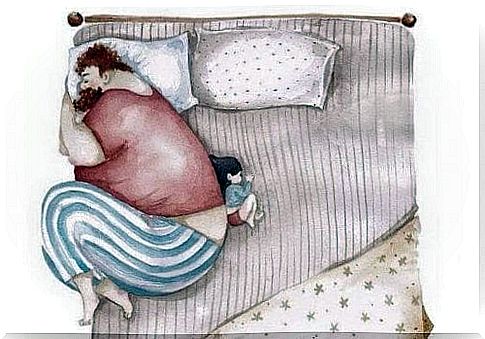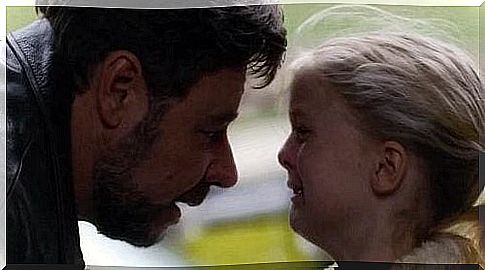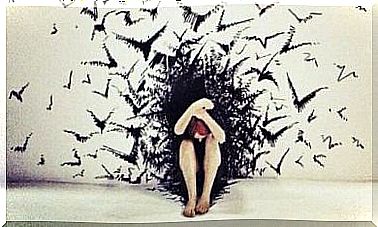Fathers And Children: The Mark Of A Father’s Abandonment

The mark that the abandonment of the father creates on a son or a daughter a very important emotional void. This huge hole ends up isolating, depressing and causing the emotional breakdown of our personal reality at all levels.
We know from decades of attachment studies that healthy bonding leads to the development of a full life in which healthy relationships, self-esteem, self-confidence, and confidence reign. in others. On the other hand, uncertain attachment leads to insecurity, low self-esteem and distrust of those around us.
A negative emotional bond between fathers and children leads to destructive behavior and enormous anxiety. This is why carrying out an exercise of introspection and posterior distancing on this event will help us to understand it and to make it evolve to guarantee a greater emotional liberation and consequently, a structuring of our personality (that is, say about our way of behaving with ourselves and with those around us).
So, in this article, we will try to shed some light on this to redirect our emotional reality.

The difficulty of defining a father and the relationship of abandonment
Today we talk about family relations with more ease than before. However, when one has had to face the figure of an absent father who has also left the family home for whatever reason, one has to come to terms with a definition of something indescribable.
In these cases, when you ask someone about their father, they can only stagger, look down, and respond in a diffuse and evasive manner. This is evident from the difficulty we have in defining the emotional void and in managing the scars that abandonment leaves in us.
In this regard, we must emphasize that there are many types of abandonment. Indeed, we could speak of as many types as there are cases in the world. Among the most frequent we can find:
- The father absent emotionally, but present in a physical way. If we pay attention to the socio-emotional reality of those around us, we will understand that this type of education is something very common over the years.
- The father who abandoned us before, during or after our childhood. The pain of physical and emotional abandonment by choice of reference figures sows very important seeds in our maturity. It is difficult to deal with the reality that we have to live in these cases. Indeed, how can you accept that a person who should accompany you for many years in your life chooses to distance yourself from you in a certain way?
- The father who abandons us physically and emotionally during childhood or adulthood. This abandonment will most likely be tinged with betrayal. This is why it requires very conscious verbal elaboration.
- The absence of the almost integral father figure. Here we find several options:
- The father who died early and who did not have the opportunity to play his part in our life.
- The father who died, but whom we have known. In this profile, aspiration and idealization will create a characteristic void.

Managing a destroyed or destructive link
The psychological development at the emotional level and at the level of thought does not depend only on the children, but on the environment as a whole. The shadow of the absent father always pulls, in one way or another, family life.









